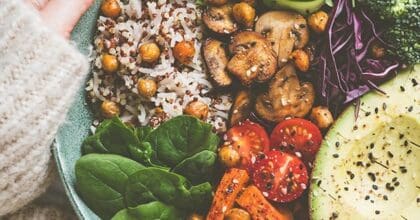Cocoa flavanols – polyphenols found in the cocoa beans – have enjoyed a reputation as an up-and-coming functional food and drink ingredient over recent years after being granted a highly sought after article 13.5 functional health claim by the European Food Safety Authority (EFSA).
One of the functions that propelled cocoa flavanol into the spotlight was that they help maintain the elasticity of blood vessels, which contributes to normal blood flow. The required daily dose to achieve the health benefits is 200 mg of cocoa flavanols per day, which could be provided by 2.5g of high-flavanol cocoa powder or 10g of high-flavanol dark chocolate.
This was the first health claim to be awarded in the cocoa and chocolate industry, and in Europe a modest amount of innovation using cocoa flavanols has followed in chocolate food and drink products. But where do we go from here?
Cocoa as new treatment for wrinkles?
Recent research suggests the consumption of cocoa flavanols might have a positive impact on the condition of the skin, which could position the ingredient well in the beauty market. For example, research conducted in Korea found that regular consumption of cocoa flavanol had positive effects on facial wrinkles and elasticity in moderately photo-aged women. Additionally, cocoa flavanol supplements may contribute to the prevention of aging effects on the skin.
The link between cocoa flavanols and healthy skin seems likely given cocoa flavanols’ proven effect on blood flow, another study shows. The skin benefits greatly from healthy circulation as blood delivers oxygen and important nutrients to body tissues, including the skin. High cocoa flavanol supplementation (326mg/day) also resulted in an increase in skin density and skin hydration when compared to the low flavanol supplementation (27mg/day). Furthermore, a significant reduction in skin roughness and scaling was seen.
Ingredient knowledge a limiting factor for beauty supplements
As highlighted in Mintel’s 2016 Food and Drink trend From the Inside Out, consumers are recognizing a link between their diet and the way they look, and the concept of “beauty from within” is resonating more and more as a result. In the UK, for example, two thirds of consumers believe that diet is the most important factor in determining the health of their skin, while more than three in five Chinese consumers agree that a balanced diet will help improve their skin.
Whilst consumers seem to be clued in when it comes to the role that diet plays in skin health, the uptake of beauty supplements remains rather low, which can be attributed to several factors. Among these are limited knowledge of the functionality of ingredients typically used in beauty supplements.
Although consumers generally have a high awareness and knowledge of functionality of ingredients used in healthcare, such as vitamin C and antioxidants, when it comes to ingredients more specific to the beauty sector, such as hyaluronic acid and coenzyme Q10, consumers are out of the loop.
Whilst more research into their affect on skin health is needed, cocoa flavanols are certainly well placed for positioning as a beauty supplement in the future. The ingredient will benefit greatly from having an approved EFSA functional health claim that should see more innovation in a range of different product categories, including supplements. This will help raise consumer awareness of cocoa flavanols as a functional ingredient and their important role in blood flow. Brands can educate consumers by making the link between blood flow and skin health when marketing products as beauty supplements.
Stephanie Mattucci is a Global Food Science Analyst at Mintel. Prior to Mintel, Stephanie worked as a Food Scientist in R&D for an ingredients company in Chicago, where she specialized in seasoning product development and provided technical expertise to customers in the food industry.
















![[WATCH] Trending ingredients to watch: Hydroxydecyl Ubiquinone](https://www.mintel.com/app/uploads/2023/06/Hydroxydecyl-Ubiquinone-艾地苯_Digital_Blog_1000x305.jpg)
![[WATCH] Trending ingredients to watch: Monk Fruit](https://www.mintel.com/app/uploads/2023/06/Monk-Fruit-罗汉果_Digital_Blog_1000x305.jpg)
![[WATCH] Trending ingredients to watch: Ginseng](https://www.mintel.com/app/uploads/2023/04/Ginseng-人参_Digital_Blog_1000x305.jpg)
![[WATCH] Trending ingredients to watch: Nonapeptide-1](https://www.mintel.com/app/uploads/2023/04/Nonapeptide-1-九肽-1_Digital_Blog_1000x305.jpg)
![[WATCH] Trending ingredients to watch: Pitaya](https://www.mintel.com/app/uploads/2023/03/Pitaya-火龙果_Blog_1000x305.jpg)



















